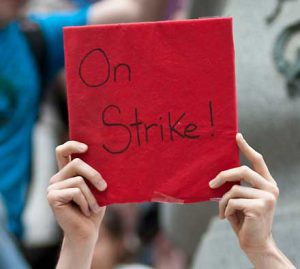
Minister open to talk about commission on university governance
By McGill Reporter Staff
As the student protest against the provincial government’s plan to hike university tuition fees by $325 a year over the next five years dragged on into its 10th week, concerns were being raised in some CEGEPs and universities about students losing their semester.
At McGill, meanwhile, although some sporadic protests have popped up on campus, exams began Tuesday with no serious disruption and the vast majority of students are focused on studying for them.
Comparatively few McGill students are boycotting classes and exams.
Yesterday, students in the School of Social Work voted to end their unlimited strike. Members of the Gender, Sexual Diversity, and Feminist Studies Student Association were voting on whether to renew their unlimined strike mandate. Results were not available at press time.
Over the week, as public pressure mounted on the government to negotiate with protesting students, Education Minister Line Beauchamp announced that she would be ready to sit down with some student groups to discuss the formation of a commission to examine university governance. But she said she will not meet with representatives of the CLASSE protest group that has been the most active in mounting various demonstrations unless it condemns an increasing spate of violence and vandalism.
In the most recent incidents, métro service was disrupted and a Molotov cocktail was tossed at the riding office of a Liberal cabinet minster which, along with three other government offices, was smeared with red paint.
CLASSE has said it has no mandate to condemn violence on the part of protesting students.
McGill took steps to guard against the disruption of exams, by not only reminding students that they must show their student ID before getting into an exam room, but by keeping the location of specific exams secret until the day before.
Deputy Provost (Student Life and Learning) Morton Mendelson said he had heard from a number of students concerned about possible disruptions to exams, as some protesters had blocked access to some classes in recent weeks.
The University, Mendelson said, has to ensure that exams will be held without disruption and in the calm and quiet atmosphere students expect.
The start of some exams on Tuesday was delayed slightly when protesters attempted to block access to the downtown campus at the Roddick and McTavish gates. Protesters also gathered at the Milton Gates, but were allowing pedestrians through. Protesters then converged at the James Administration building and briefly blocked all its entrances before dispersing.
Meanwhile, a letter to the Principal from graduate students and others demanded an extension on theses deadlines and other accommodations for students who have participated in the boycott of classes.
Mendelson replied on behalf of the administration, saying the University has made it clear from the beginning that academic deadlines and schedules would be adhered to and that students who chose to miss classes or hand in assignments late had to be prepared to face the resulting academic consequences.
“The University’s position has been stated early, repeatedly and clearly,” Mendelson wrote. “The semester will continue on schedule; the consequences for incomplete or late academic assignments and missed examinations depend on individual, not collective, circumstances. Professors understand their academic duties and responsibilities; they may accommodate students regarding class requirements based on individual circumstances.
“Extending the dates for examinations, theses, dissertations, or other written or oral work would create undue burdens on those involved in evaluations and the submission and processing of grades. It would also be unfair to the vast majority of students who have fulfilled their academic responsibilities and who have worked to meet the deadlines set out in the Calendar and in course outlines.”
